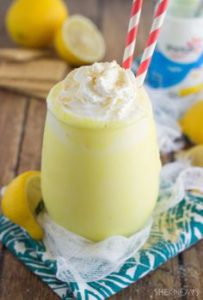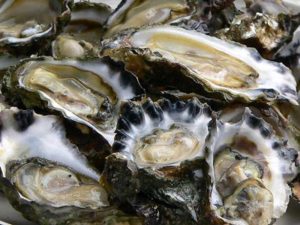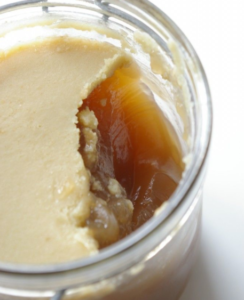The Food You E A T: What is What?
A lot of the parents I work with ask what food’s count as what. “I know an apple is a fruit, but does it have protein in it?” When I ask some of my Head Start kids where meat comes from, they yell, “From the grocery store.” I figured it might be good to break things down further.
The food pyramid puts our foods into categories: meats/beans, milk, fruit, vegetable, grains. We also break food down into macronutrient groups: carbohydrates, fats and proteins; and then further into micronutrient groups: vitamins and minerals. Just because a food is categorized as a carbohydrate, doesn’t mean it is only made of carbohydrates or sugar molecules, it just means that this is the primary nutrient. For instance, milk has protein, fat and carbohydrates in it. It is certainly not all black and white! Referring to the food label is also a good way to gain clarify on what a food is comprised of. Eating a variety of Whole Foods is the best way to get as many nutrients in as possible.
Carbohydrates: These are found naturally in grains, vegetables, fruits and sometimes legumes. We need them in order to help fuel our brains and body every day. The most important are carbohydrates from vegetables and fruits. We do not need excess of grains or sugary foods such as: breads, pasta, tortillas, rice, cereal, crackers, chips, etc.
– Everyday Examples of “Good Carbohydrates”: Legumes, berries, melon, apples, pineapple, bananas, asparagus, broccoli, cucumber, spinach, mushrooms, onions, peppers, and tomatoes.
Fats/Oil: Fats and oils are commonly perceived as being bad for your body, but in fact, the “good” fats that are found naturally in food are essential to maintain your hormones, maintain gut health, make cholesterol, and are incredibly beneficial to keep you fuller longer. The reason why fats were originally given a bad name was because of hydrogenated and ‘trans’ fats from processed foods and fast food restaurants. These fats are not beneficial to us.
– Everyday Examples of “Good Fats”: Natural oils we cook with (such as butter/coconut oil/ghee/duck fat for heat and olive/avocado oil for cold foods), some dairy products (such as cheese, Greek yogurt, raw milk), bone broth, eggs, meats, fish, avocados, olives, nuts, and seeds.
Protein: Proteins help maintain body structures, muscles and brain development. Eating more proteins in combination with carbohydrates and fats can actually help you feel fuller longer.
– Everyday examples of “Proteins”: Chicken, beef, pork, turkey, lamb, fish/shellfish, sardines, oysters, tuna, nuts, seeds, cheeses, Greek yogurt, cottage cheese, dairy, eggs, avocado, nut butters (peanut butter, almond butter, cashew butter, sunflower butter etc.), beans, and some other vegetables.
Vitamins: We have always been told, “Make sure you take your vitamins”, because everyone knows that it’s important to receive your daily fix. But what most people do not know is that if you eat a balanced and nutritious diet, you will get the vitamins you need. Vitamins are the most basic helping tool to make your body function every day; as they help with your body create energy and metabolism. Nonetheless, taking a quality multi vitamin (Garden of Life, New Chapter, Apex, Standard Process etc.), is never a bad idea being that many of us do not get enough nutrients!
– Everyday examples of “vitamin rich foods”: Carrots, sweet potatoes, spinach, kale, bell peppers, broccoli, brussels sprouts, dark leafy green vegetables, tomatoes, almonds, beans/lentils, garbanzo beans, liver, oysters, tuna, milk, & bananas.
Minerals: Daily minerals are essential for a variety of body functions. They are important for building strong bones, teeth, skin, hair and other metabolic processes that help turn the food we eat into energy. Common minerals names include sodium, chloride, potassium and calcium; however there are many more. A balanced and healthy diet should provide enough minerals for most people.
– Everyday examples of “mineral rich foods: Fish, sardines, salmon spinach, liver, peas/beans, asparagus, mushrooms, dark green leafy vegetables, potatoes, bananas & prunes.
Water: The most important element of your daily diet should be water. Water plays many roles in the body including helping with your body temperatures and help transport nutrients throughout your body. Water should be the most important beverage you consume!




Leave a Reply